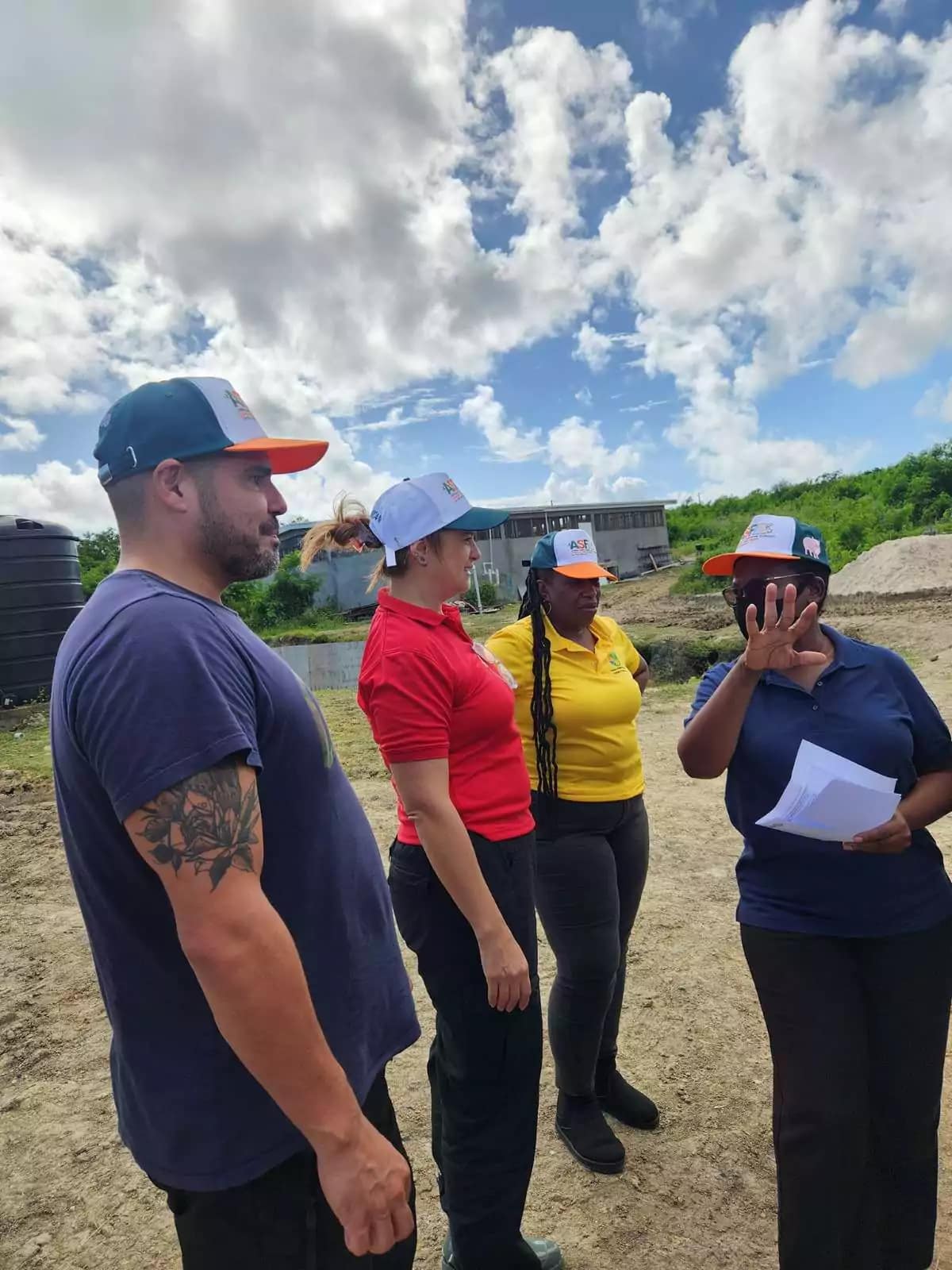Antigua and Barbuda has made significant strides in enhancing its animal health and bio-security systems through the African Swine Fever (ASF) Sampling Pilot. This initiative, a collaboration between the Inter-American Institute for Cooperation on Agriculture (IICA), the United States Department of Agriculture (USDA), and the Ministry of Agriculture, Lands, Fisheries, and the Blue Economy, aims to fortify national surveillance and response capabilities against animal diseases, particularly ASF. ASF is a highly contagious viral disease that poses severe economic risks to the swine industry. The program brought together veterinary officers, livestock specialists, and regional experts to reinforce national surveillance capacity and field response readiness. The opening day, held at the People’s Place Conference Room on Nugent Avenue, featured remarks from Craig M. Thomas of IICA, Fernando Hugo from the USDA, and Dr. Ericka Calderon, ASF Project Manager at IICA Headquarters. Gregory Bailey, Director of Agriculture, emphasized the Ministry’s commitment to proactive surveillance and early detection systems, highlighting the importance of preparedness and rapid response in safeguarding national food security and livelihoods. Technical presentations introduced participants to the regional ASF surveillance framework and Antigua and Barbuda’s diagnostic capabilities. Dr. Tubal Edwards, Chief Veterinary Officer, provided an overview of the local swine industry and the Veterinary Services Division’s efforts to improve animal health monitoring. Dr. Christopher Hamilton-West, Epidemiologist, discussed epidemiological surveillance principles, supported by a visual presentation on best practices in field data collection and disease containment. The second day focused on practical application, with participants divided into two teams for farm visits across the island, including the His Majesty’s Prison Farm. A total of 35 pigs were sampled, with each tube carefully labeled for traceability. The samples are being prepared for overseas laboratory analysis to determine disease presence and guide future animal health strategies. The field visits tested surveillance procedures and reinforced the discipline and precision required in real-world disease investigation. Participants demonstrated the correct use of personal protective equipment (PPE), safe animal restraint, sample collection, and detailed data recording. Emphasis was also placed on the removal and sanitation process for PPE and equipment to prevent the transfer of infectious material. Dr. Dane Hartley, Veterinarian and Agricultural Health, Safety Agri-Food Quality Specialist with the EECOM, noted that the practical experience reinforced critical lessons from the previous day. After returning from the field, both teams participated in a joint debriefing session to evaluate their performance, share insights, and highlight key takeaways for continuous improvement in surveillance readiness. The ASF Sampling Pilot is part of the wider Surveillance and Response to Prevent African Swine Fever in the Americas Project, which aims to bolster regional coordination and capacity building across the Caribbean. Through this initiative, Antigua and Barbuda continues to position itself as a proactive leader in animal health management, ensuring that its livestock sector remains safe, sustainable, and resilient. The Ministry reaffirms its commitment to ongoing disease monitoring, collaboration with regional partners, and protecting the future of the nation’s pork and livestock industry, with farmers welcoming the initiative.
Antigua and Barbuda strengthens biosecurity under ASF Sampling Pilot
